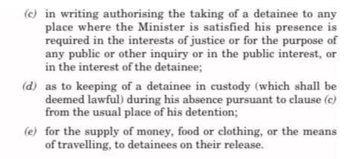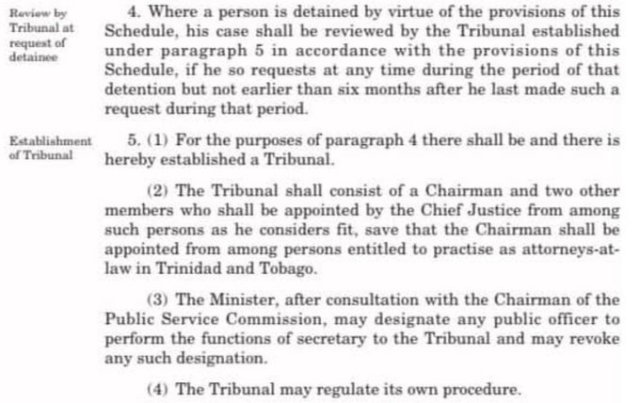Who’s a “Law-Abiding Citizen” in an SoE?
Can you really be a law-abiding citizen under a State of Emergency (SoE) if you don’t understand the law?
Now that the Emergency Powers Regulations 2024 have finally dropped, the law-abiding citizens of Trinidad and Tobago can rest assured that they have nothing to fear from the SoE, just as acting Attorney General Stuart Young and National Security Minister Fitzgerald Hinds assured us yesterday, right?
Well…
The thing is, it’s a bit disingenuous to tell the general public not to worry about the constitutional rights you’ve revoked because they’re law-abiding citizens, even as you’re changing the laws themselves. Especially when you announced the SoE more than 12 hours before you revealed those new laws.
It’s even more disingenuous when you know that the vast majority of the public isn’t capable of comprehending the legal notice outlining the new laws, depending instead on media houses (with their various agendas) to translate for them. Which means that, depending on what you decide to include in that notice, previously law-abiding citizens could become criminals overnight.
Those of us who aren’t lawyers but are capable of parsing legalese woke up to discover that the new regulations included a few details Ministers Young and Hinds neglected to mention yesterday.
Such as the full extent of the Police Commissioner’s new powers:

The legal exemptions for anyone following orders:

And the fact that Hinds is now empowered to detain anyone he likes (at a location and under conditions he decides) without a warrant, under the justification of preventing them from threatening public safety or order.
And those detainees won’t be seeing a judge or jury. Instead, they’ll go before a self-regulating tribunal appointed by Chief Justice Ivor Archie, which will determine whether the detention should continue after Hinds submits his grounds for detention (which he has seven days to do). If they decide the detention is good to go, the detainee has to wait six months to request a review. Assuming the SoE is still in force by then.
But why should this matter to law-abiding citizens? After all, Minister Young was very clear about the fact that they were targeting only specific individuals in specific areas, specifically relating to the possession of high-powered firearms, right?
Well…
It turns out that the new regulations also cover speech that “influence[s] public opinion in a manner likely to be prejudicial to public safety and order.”

As Young didn’t mention this in the presser and these regulations didn’t come out until much later, the government’s interpretation of speech that threatens “public order” is currently anyone’s guess.
This is particularly concerning to ostensibly law-abiding individuals who, for instance, spend their free time contextualising matters of governance for public consumption.
It’s no less concerning that the regulations specifically grant the cops permission to search and detain anyone they feel is in violation of this rule without a warrant. Seriously. As worded, it specifically targets weapons (8) and speech (12, above):

If you’re now realising that your most recent social media posts may have turned you into a criminal overnight, you should know that if they do decide to come for you, they can hold you for up to seven days without bail or habeas corpus. That last one is the legal right to appear before a judge unless lawful grounds can be shown for your detention… also known as your former constitutional protection against unlawful and indefinite imprisonment.

Oh, and the T&T Defence Force (TTDF) can come for you too:

Listen, I know life is a lot, and it’s just easier to believe that the people we’ve put in power wouldn’t abuse it, but the thing about constitutional protections is that they exist in order to prevent human beings from doing what human beings do when they aren’t bound by legal restrictions.
I’m not saying the State (which includes the TTPS & TTDF, organisations that aren’t exactly known for their lack of corruption) is definitely going to abuse the new powers it has granted itself. I’m saying that, when the State decides to suspend laws specifically designed to protect us from it, it would be smart of us to pay close attention to which laws it’s suspending and ask why.
And I’m also saying that, given these regulations, for the duration of this exercise, if you don’t hear from a particularly troublesome blogger on Twitter for seven days straight… ask about that too. ?
Discover more from For What It's Worth
Subscribe to get the latest posts sent to your email.









Comments are closed.